Food crisis in Namibia
One in five hungry
Urgent intervention is crucial to help the rising number of Namibians who face serious food insecurity every day of their lives.
The percentage of Namibia's population experiencing high levels of acute food insecurity, which currently stands at 22%, is projected to rise to 26% between next month and March 2024.
That means that the current 579 000 people who currently viewed as in crisis or emergency mode, will increase by 116 000 or 20% to 695 000 by March next year.
These Namibians are in need of “urgent action”, compilers of the Integrated Food Security Phase Classification (IPC) said in their latest report. The IPC’s visual snapshot of the situation in Namibia is used in this article.
According to the IPC, three key drivers are responsible for the dire situation: dry spells, price shocks and unemployment.
Namibia endured the negative consequences of prolonged dry spells and unpredictable rainfall patterns, leading to adverse impacts on both crop and livestock production. The scarcity of grazing land and water resulted in increased livestock mortality rates, while crop yields declined significantly in the affected regions, the IPC said.
In addition, the increasing global prices of fuel products have triggered a rise in both food and non-food expenses, consequently eroding the purchasing power of individuals.
Lastly, the economic downturn and job losses resulting from the Covid-19 pandemic left numerous households dependent on markets for their food supply, the IPC said.
Inflation
The Namibia Statistics Agency (NSA) yesterday the latest inflation figures.
Last month, maize inflation was 12.3% compared to 10.2% in August 2022. Rice soared from -2.6% to 12.1%.
Overall bread and cereal inflation rose from 9.8% to 11.6% year-on-year (y/y).
The overall figure for meat surged from 5.2% to 8.4% y/y. Inflation for chicken rose from 7.8% to 13.7%, while sausages escalated from -0.8% to 15.2%.
Milk remained flat at 6.4%, while inflation for cheese increased from 5.5% to 9.7%.
Potatoes were up from 12.1% to 24.3%, onions from 7.9% to 44.5%, carrots from -4.2% to 16.1%, and pumpkin from 1.6% to 13.5%.
Inflation for citrus fruits grew from 18.7% to 21.5%, while the figure for apples rose from -7.3% to 7.6%.
Sugar inflation 11.7% last month against 9.6% a year ago - while jam rose from 7.8% to 9.2%.
Food is the second biggest item in the Namibian consumer basket. Out of every N$100 in the average Namibian’s pocket, N$16.45 is spent on food.
Response priorities
“Urgent action is required to save lives, reduce food consumption gaps and protect livelihoods especially those classified in IPC Phase 3 or above (crisis or worse),” the IPC urged.
Of the array of response priorities recommended by the IPC, five need to be taken by the ministry of agriculture, water and land reform (MAWLR).
The ministry must allocate resources towards the development of water infrastructure equipment designed for harvesting and storing water, particularly during flood seasons, the IPC said. This stored water will serve both domestic and livestock needs.
It needs to provide additional agricultural equipment, such as tractors, to farmers to support their plowing and agricultural activities.
The ministry should also extend financial assistance to non-operational green schemes, enabling them to become functional once more. These green schemes play a vital role in providing food and employment opportunities to communities.
Furthermore, the ministry needs to enhance the development of the underground water aquifer in the Ohangwena region, with the aim of supplying water to northern Namibia.
The MAWLR should actively promote climate-smart agricultural production practices in regions reliant on crop and livestock activities. This includes promoting the cultivation of drought-resistant cereal and crop seeds that mature quickly and yield results within a short timeframe, according to the IPC.
Other response priorities
The ministry of gender equality, poverty eradication and social welfare should persist in its efforts to distribute food to marginalised communities, the IPC urged.
During data collection, the IPC noted that a significant portion of the population lacks national documents.
This is often due to challenges like transportation costs and residency duration requirements, preventing them from accessing various social grants and hindering children from enrolling in higher education.
Therefore, the ministry of home affairs, immigration safety and security (MHAISS) should engage in community outreach through household visits to register eligible individuals. Additionally, it should reassess the minimum residency requirements for acquiring citizenship through naturalisation, among other measures, the IPC said.
During the data collection, it became evident that a majority of households, whose primary source of income relies on social grants, allocate over half of these grants towards food expenses, leaving insufficient funds for non-food necessities such as education.
This issue is particularly pronounced in households with larger family sizes, according to the IPC.
To address this concern, the ministry of gender equality, poverty eradication and social welfare should contemplate increasing the income provided through social grants, the IPC stressed.
That means that the current 579 000 people who currently viewed as in crisis or emergency mode, will increase by 116 000 or 20% to 695 000 by March next year.
These Namibians are in need of “urgent action”, compilers of the Integrated Food Security Phase Classification (IPC) said in their latest report. The IPC’s visual snapshot of the situation in Namibia is used in this article.
According to the IPC, three key drivers are responsible for the dire situation: dry spells, price shocks and unemployment.
Namibia endured the negative consequences of prolonged dry spells and unpredictable rainfall patterns, leading to adverse impacts on both crop and livestock production. The scarcity of grazing land and water resulted in increased livestock mortality rates, while crop yields declined significantly in the affected regions, the IPC said.
In addition, the increasing global prices of fuel products have triggered a rise in both food and non-food expenses, consequently eroding the purchasing power of individuals.
Lastly, the economic downturn and job losses resulting from the Covid-19 pandemic left numerous households dependent on markets for their food supply, the IPC said.
Inflation
The Namibia Statistics Agency (NSA) yesterday the latest inflation figures.
Last month, maize inflation was 12.3% compared to 10.2% in August 2022. Rice soared from -2.6% to 12.1%.
Overall bread and cereal inflation rose from 9.8% to 11.6% year-on-year (y/y).
The overall figure for meat surged from 5.2% to 8.4% y/y. Inflation for chicken rose from 7.8% to 13.7%, while sausages escalated from -0.8% to 15.2%.
Milk remained flat at 6.4%, while inflation for cheese increased from 5.5% to 9.7%.
Potatoes were up from 12.1% to 24.3%, onions from 7.9% to 44.5%, carrots from -4.2% to 16.1%, and pumpkin from 1.6% to 13.5%.
Inflation for citrus fruits grew from 18.7% to 21.5%, while the figure for apples rose from -7.3% to 7.6%.
Sugar inflation 11.7% last month against 9.6% a year ago - while jam rose from 7.8% to 9.2%.
Food is the second biggest item in the Namibian consumer basket. Out of every N$100 in the average Namibian’s pocket, N$16.45 is spent on food.
Response priorities
“Urgent action is required to save lives, reduce food consumption gaps and protect livelihoods especially those classified in IPC Phase 3 or above (crisis or worse),” the IPC urged.
Of the array of response priorities recommended by the IPC, five need to be taken by the ministry of agriculture, water and land reform (MAWLR).
The ministry must allocate resources towards the development of water infrastructure equipment designed for harvesting and storing water, particularly during flood seasons, the IPC said. This stored water will serve both domestic and livestock needs.
It needs to provide additional agricultural equipment, such as tractors, to farmers to support their plowing and agricultural activities.
The ministry should also extend financial assistance to non-operational green schemes, enabling them to become functional once more. These green schemes play a vital role in providing food and employment opportunities to communities.
Furthermore, the ministry needs to enhance the development of the underground water aquifer in the Ohangwena region, with the aim of supplying water to northern Namibia.
The MAWLR should actively promote climate-smart agricultural production practices in regions reliant on crop and livestock activities. This includes promoting the cultivation of drought-resistant cereal and crop seeds that mature quickly and yield results within a short timeframe, according to the IPC.
Other response priorities
The ministry of gender equality, poverty eradication and social welfare should persist in its efforts to distribute food to marginalised communities, the IPC urged.
During data collection, the IPC noted that a significant portion of the population lacks national documents.
This is often due to challenges like transportation costs and residency duration requirements, preventing them from accessing various social grants and hindering children from enrolling in higher education.
Therefore, the ministry of home affairs, immigration safety and security (MHAISS) should engage in community outreach through household visits to register eligible individuals. Additionally, it should reassess the minimum residency requirements for acquiring citizenship through naturalisation, among other measures, the IPC said.
During the data collection, it became evident that a majority of households, whose primary source of income relies on social grants, allocate over half of these grants towards food expenses, leaving insufficient funds for non-food necessities such as education.
This issue is particularly pronounced in households with larger family sizes, according to the IPC.
To address this concern, the ministry of gender equality, poverty eradication and social welfare should contemplate increasing the income provided through social grants, the IPC stressed.



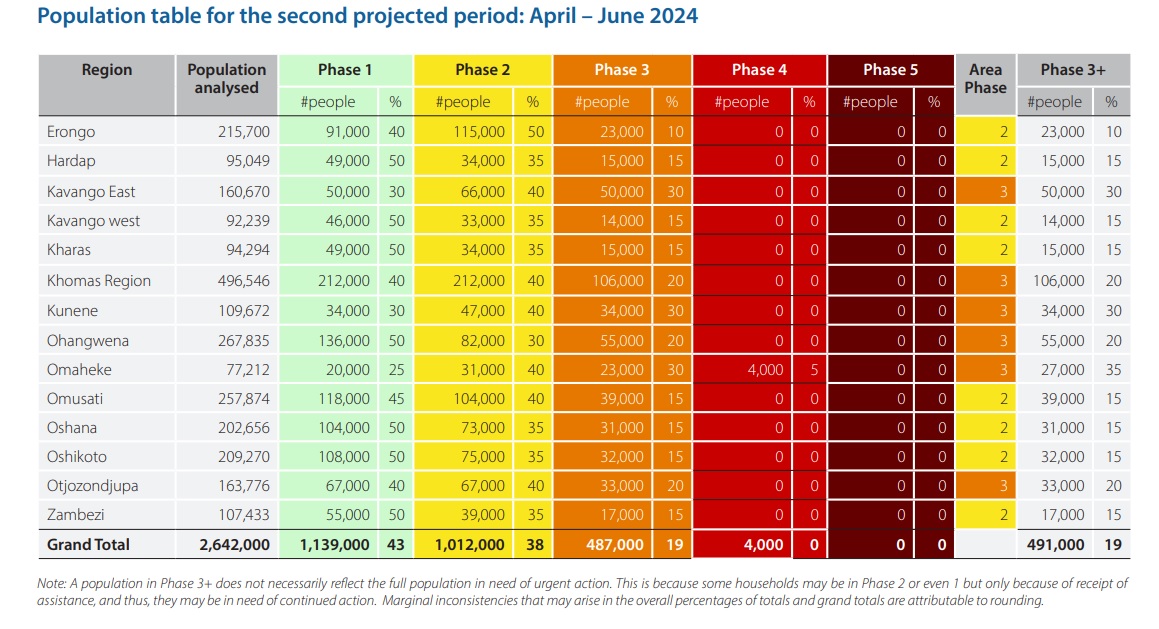
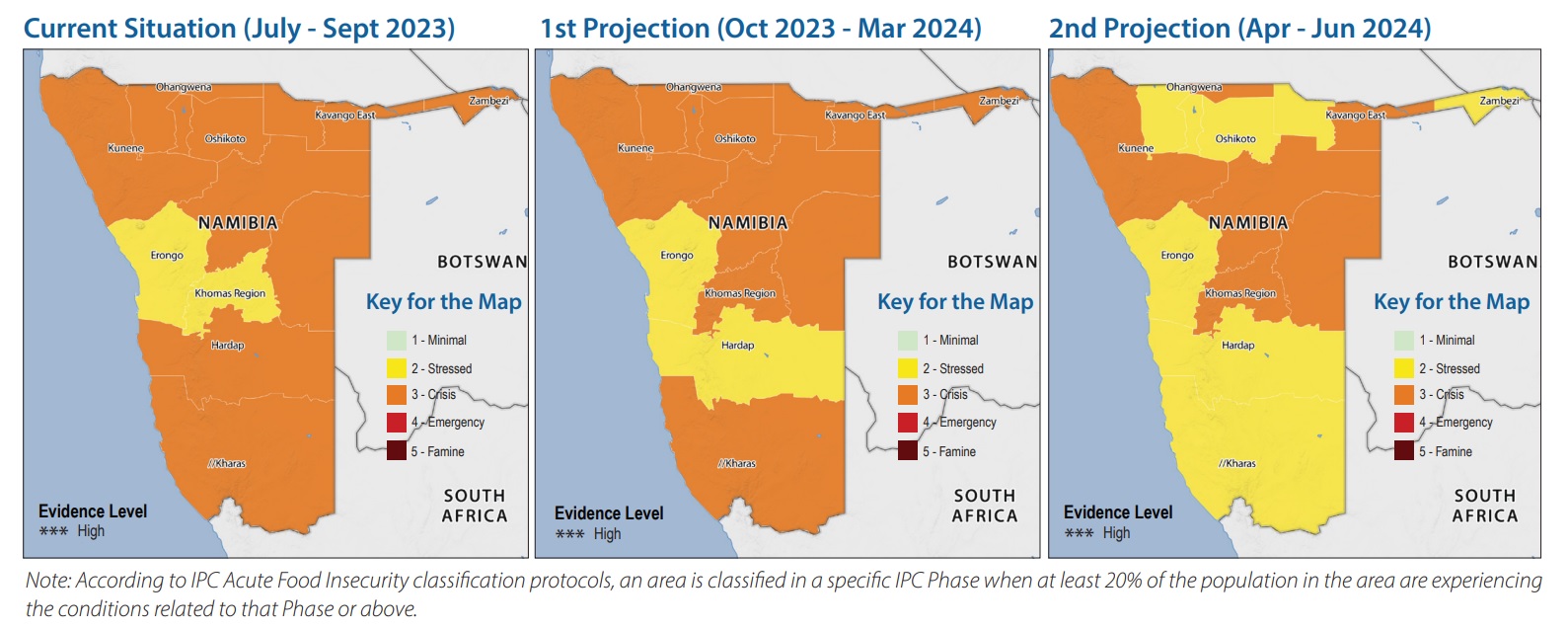
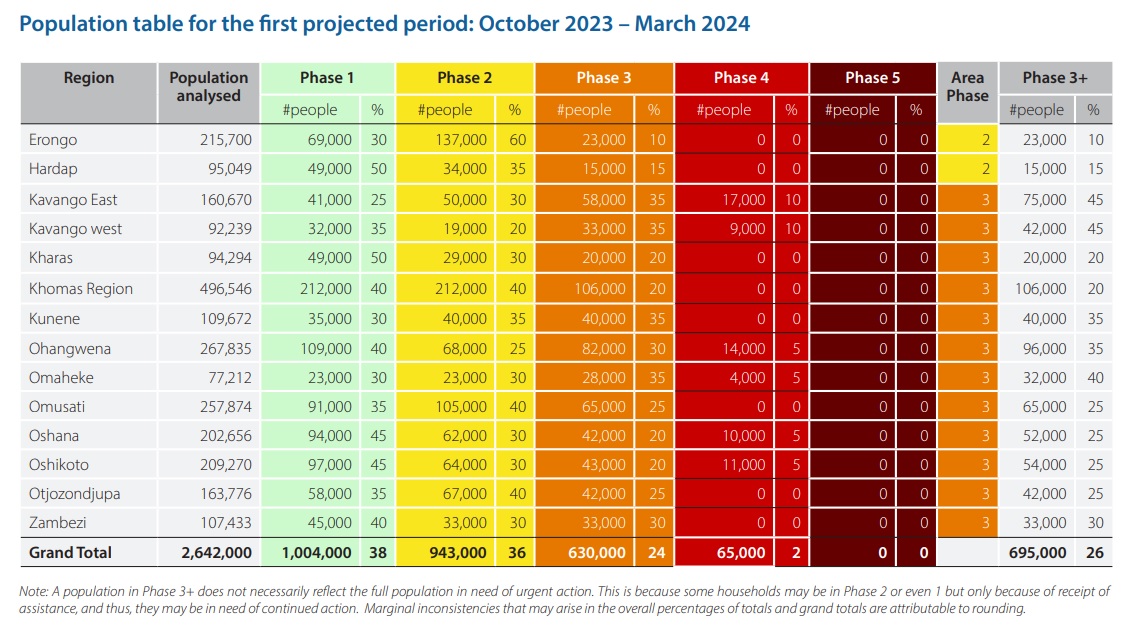

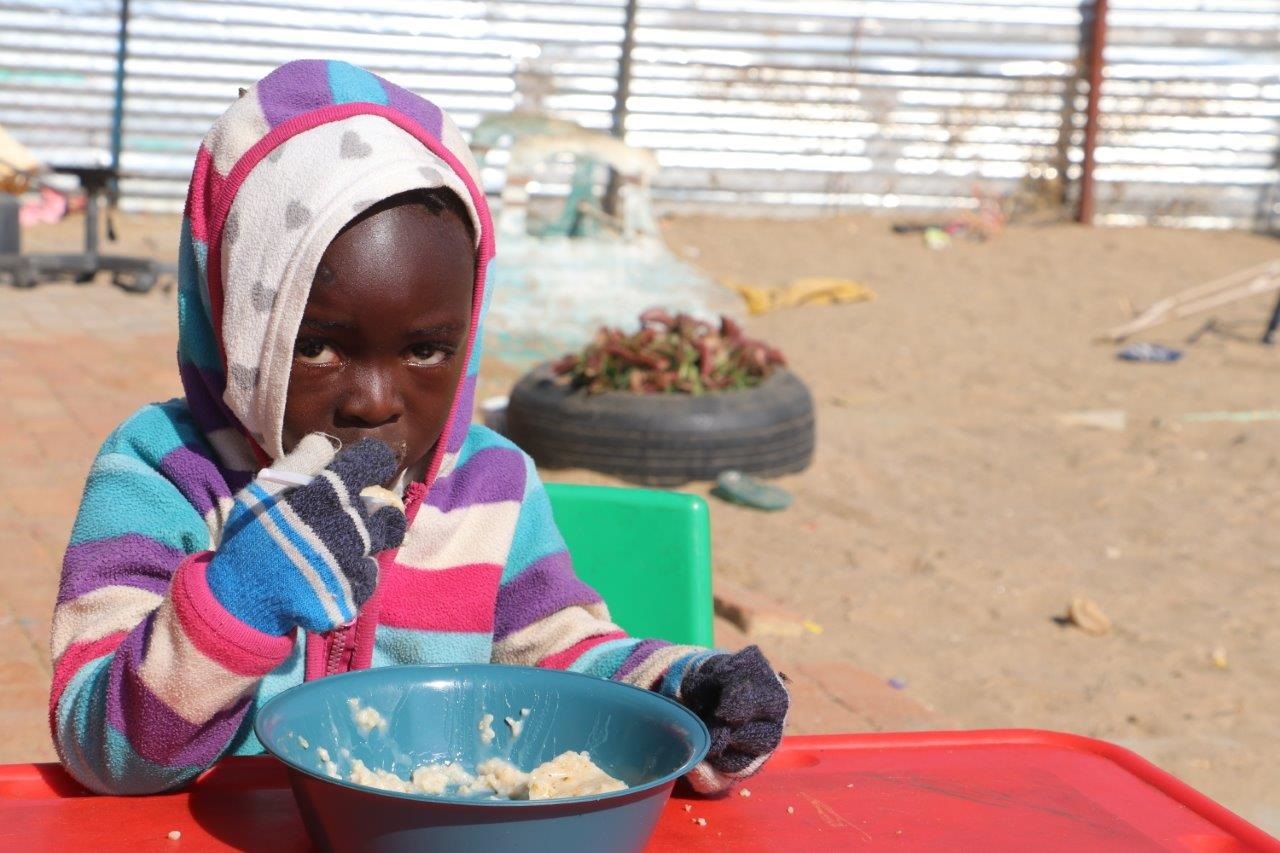
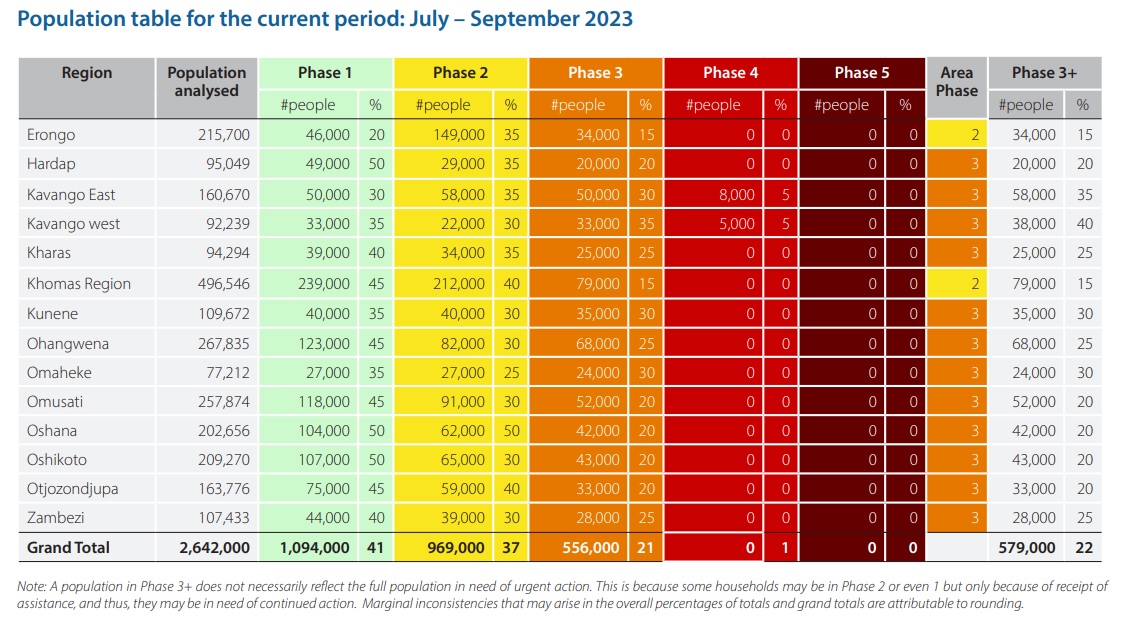
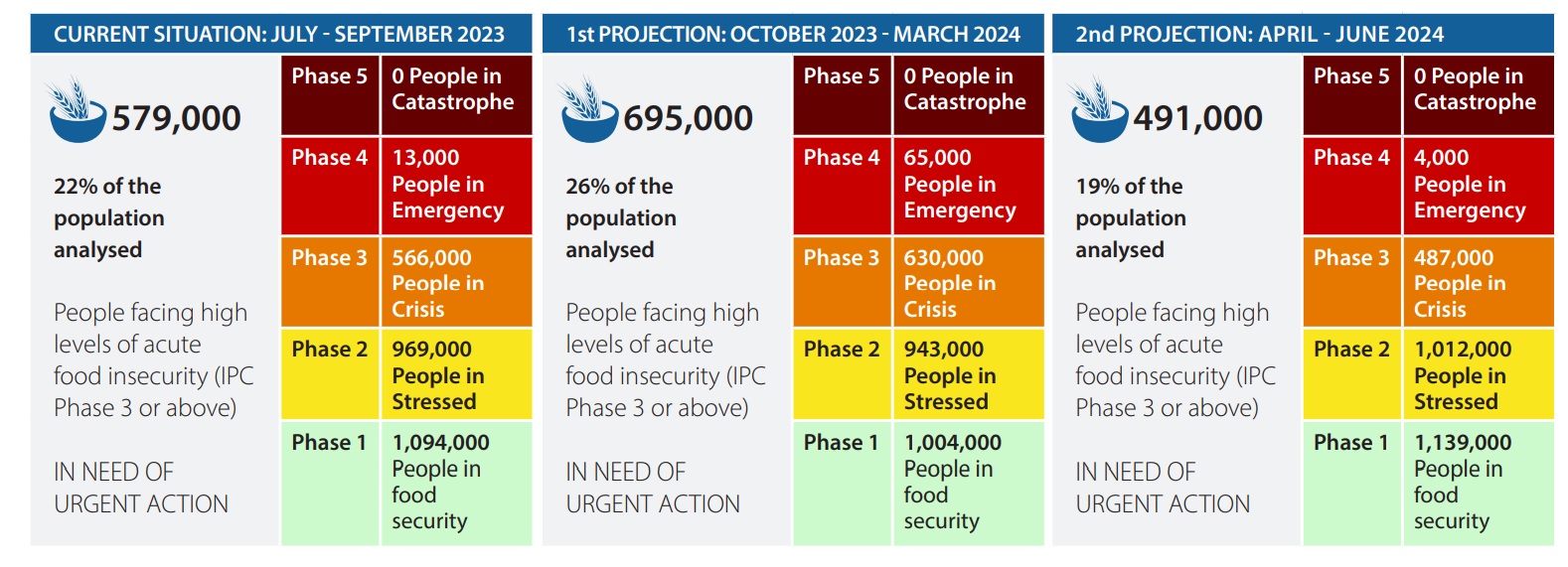

Kommentar
Allgemeine Zeitung
Zu diesem Artikel wurden keine Kommentare hinterlassen